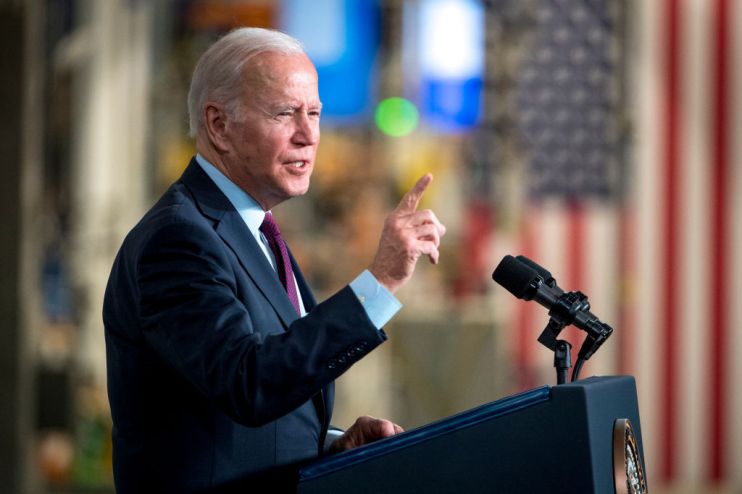US tries to lure chipmakers away from expansion in China with $52bn subsidy package

The US has tried to incentivise chipmakers to not expand any further into countries like China and Russia, which is forecast to hit TSMC and Intel.
Under the Chips and Science Act, which the White House is expected to sign this month, the US will offer semiconductor manufacturers access to $52bn (£42.5bn) worth of subsidies.
The proposed law blocks companies that get federal funding from expanding production of chips more advanced than 28-nanometers in countries of concern for 10 years.
While they are not the most developed semiconductors, 28-nanometer chips are still used in cars and smartphones.
However, chipmakers will be allowed to build on production in China and Russia should it be of 28-nanometer semiconductors or older, to serve primarily the country’s local market.
Taiwan-based TSMC, which makes chips for Apple iPhones, invested $2.8bn (£2.3bn) in its Chinese manufacturing just last year. Despite Taiwan now wrestling with escalating military threats from Beijing.
While Intel, in a bid to ease global shortages, looked to increase its production of silicon wafers in China, having unveiled its first chip manufacturing plant in China in 2010.
The move was, however, quashed by the US at the time.
“Legislation this complex and important requires input from all stakeholders. Intel and many companies in our industry have come together with our trade association to provide input to policymakers in order to ensure that we have the best legislation possible and don’t inadvertently undermine the global competitiveness of companies that receive CHIPS funds,” Intel spokeswoman Nancy Sanchez told Bloomberg yesterday.
The move forms part of rising tensions between Washington and Beijing, as fears around potential military escalation with China weighing on US markets, Josh Mahoney of investment platform IG Group said today.
But the Act, if passed, will not just be a blow to China.
Just last week, boss of British semiconductor firm Paragraf told City A.M. that the $52bn package is a “huge risk” to the UK’s chip making industry.
While Britain lacks a clear strategy on computer chips and an advisory board, unlike global competitors the US, Taiwan and Germany, billions in subsidies could lure UK-based businesses across the pond.
Asked about the likelihood of UK firms going to the US, CEO of British chipmaker Paragraf, Simon Thomas said it is “a very big risk. It’s a huge risk.”
“That $52bn is probably not the end, it’s probably the beginning,” he added.
While the package is yet to be approved, Biden has urged that the backing is critical for the US to “stay in the game” as China and Germany pump investment into their homegrown chip makers.
City A.M. has contacted TSMC for comment.